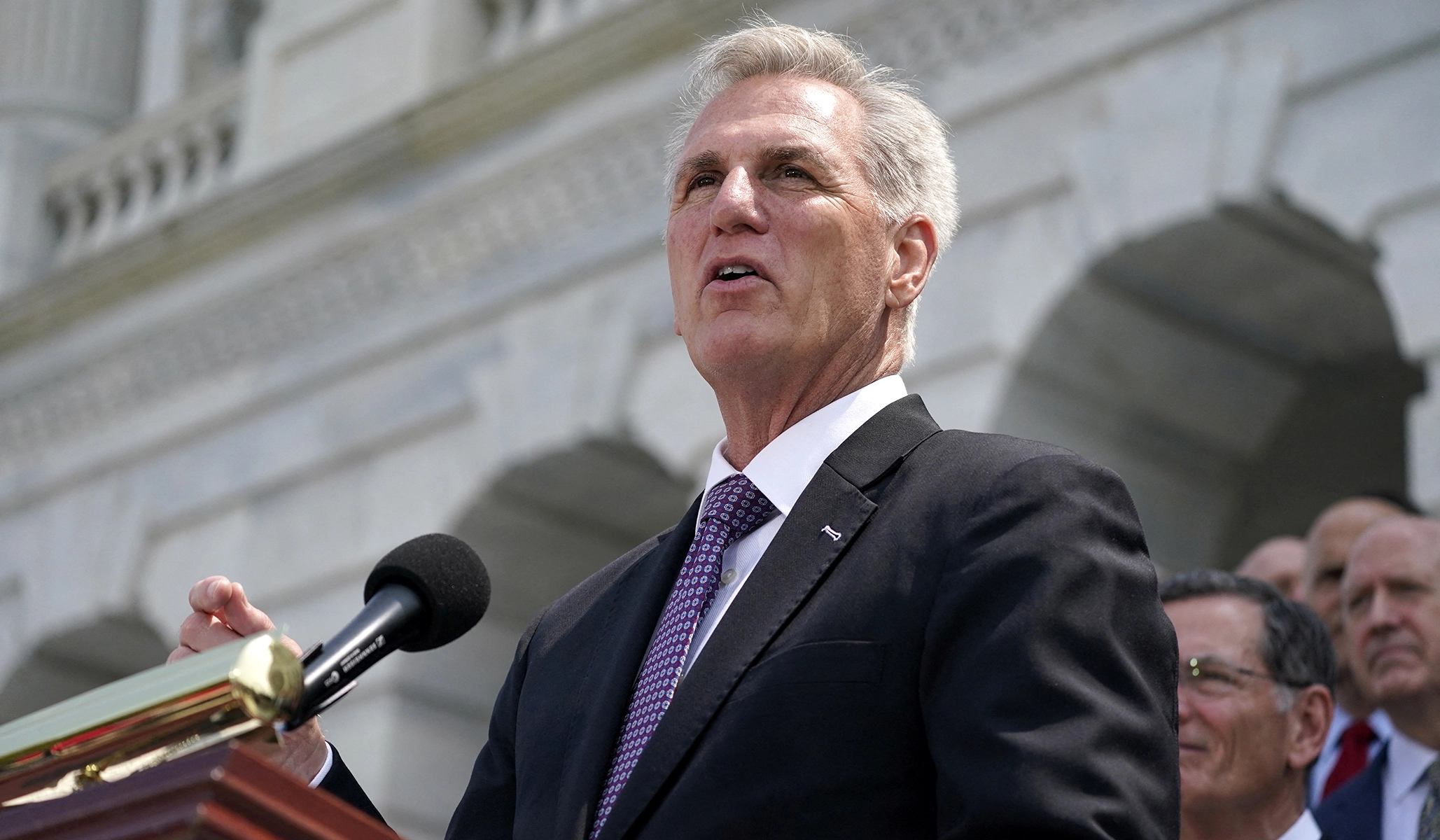Last Tuesday, a significant event took place in the House of Representatives: a rule was voted down on the House floor for the first time in 21 years. This was unusual because, in recent years, members of the majority party have almost always voted in line with their party on rule votes. However, in this case, eleven Republican members broke ranks and voted with Democrats to sink the rule. The House majority leader, Representative Steve Scalise, also voted against the rule for procedural reasons.
In this context, a “rule” refers to a set of instructions that dictate which legislation is eligible for consideration and what kind of debate will be allowed. These rules, which are crafted by the Rules Committee, play a crucial role in structuring the House’s agenda, particularly for politically contentious bills. Both party leaders have emphasized to their members the importance of passing rules, as failing to do so is seen as forfeiting the advantages of holding the majority. Typically, there are no surprises in these votes, with dissenting members expected to voice their concerns well before the rule is brought to a vote on the floor.
Ironically, the Republican members who voted against the rule did not actually oppose its content. They supported the bills being brought up and agreed with the terms of debate outlined by the rule. In fact, two of them, Representatives Ralph Norman (R., S.C.) and Chip Roy (R., Texas), had previously voted in favor of the rule in committee. However, they chose to sink the rule on the floor as a way to express their displeasure with the recent debt-limit deal. Their main objective was to embarrass their party’s leaders. They have even expressed a willingness to vote against all party rules unless Speaker Kevin McCarthy (R., Calif.) satisfies the terms of the deal they made with him in January to resolve the speakership battle.
This raises questions about the position of House Republicans. Is McCarthy effectively weakened as the leader of the narrow majority? And if so, does he have other options for managing the chamber? Or will these eleven members now have significant influence?
* * *
Back in December 2022, when it became clear that McCarthy’s path to the speakership would be challenging, some predicted that even if he won the job, he would not have much real power. Steve Bannon, a prominent figure on the far right, suggested that Representatives Matt Gaetz (R., Fla.) and Marjorie Taylor Greene (R., Ga.) would become de facto speakers, wielding power in practice if not in formal position.
Media coverage of the speakership struggle gave the impression that Bannon may have been correct, albeit focused on the wrong individuals. McCarthy secured the speakership by making a complex deal with a group of 14 Republican members led by Roy. As part of the deal, Roy, Norman, and Representative Thomas Massie (R., Ky.) were given seats on the crucial House Rules Committee. The Rules Committee is heavily biased in favor of the majority party, with nine seats allocated to them and only four to the minority party. There were also reports of other undisclosed commitments. From the beginning, the conservative dissidents were concerned about the possibility of McCarthy making deals with Democrats, and many speculated that McCarthy had promised not to compromise in this year’s fiscal debates. Importantly, the dissidents were given an enforcement mechanism: any member could make a motion to vacate the chair (MTV), which would force a no-confidence vote on the speaker. Given McCarthy’s slim margin of victory, it seemed that his intraparty critics could bring down his speakership whenever they pleased.
McCarthy did eventually strike a deal with Democrats, which became law despite opposition from Gaetz, Roy, and most of the other lawmakers who opposed his ascension in January. The bill passed with the support of over two-thirds of Republicans and nearly four-fifths of Democrats.
The bill’s journey through the House was not without suspense. The rule bringing the bill to the floor barely made it through the Rules Committee with a narrow 7-6 vote, with Roy and Norman voting against it. On the House floor, 29 GOP members opposed the rule, making it clear that it would not pass with Republican votes alone. In a dramatic turn of events, 52 members of the minority party ultimately supported the rule, leading to its passage with a vote of 241-187.
This raises the question: why couldn’t the opponents of the deal stop it, given the concessions they had extracted from McCarthy in January? During that battle, Roy criticized a House run by “a handful of self-selected power brokers who make all the calls” and demanded control over the legislation brought to the floor. He described the rules package secured in the peace agreement with McCarthy as a “fundamental transformation of this House to ensure the people can be represented by their representatives.” However, in the end, similar to previous debt-ceiling deals, this one was brokered by congressional leaders and the president and ratified by a bipartisan majority. What happened?
It has become clear that the leverage provided by the MTV motion was more apparent than real. Some of the dissenting Republicans have expressed a desire to use the motion to try to topple McCarthy, but they haven’t done so for a simple reason: they would lose. Democrats, having witnessed McCarthy’s ability to negotiate with President Biden in good faith, have little incentive to cooperate with the bomb-throwers in the GOP conference to bring him down. McCarthy doesn’t have an obvious rival with broader support among Republicans. While having to re-win his post would be distracting and potentially embarrassing, McCarthy made the deal because he believed his speakership could withstand the backlash from the right.
The dissenters have demonstrated their ability to block legislation that lacks support solely from Republicans, unlike the debt-limit deal. This is undoubtedly causing Republican leaders to pause. In the current hyperpartisan climate, the majority party focuses on framing and passing bills that align with their talking points and put their political opponents on the defensive. Two of the bills recently voted down in the rule perfectly fit that mold, as they address the contentious issue of gas stoves. McCarthy and other GOP leaders will be disappointed if they cannot advance such bills.
However, the leverage of the dissenters should not be overstated. With Democrats controlling the Senate and the White House, the chance of any bill passed solely by House Republicans becoming law is zero. Failing to pass these bills may be disappointing in terms of messaging, but it has little practical impact. Republicans can still claim that they championed their favorite causes, like gas stoves, and that Democratic opposition prevented the legislation from passing.
If McCarthy’s critics want to have a more significant impact on reshaping the House, they would need to have a positive agenda that attracts Democrats. At that point, the three seats on the Rules Committee that the dissenters have could become influential, as three dissident Republicans plus four Democrats could outvote six loyalist Republicans. However, it is unclear if McCarthy’s Republican detractors have any plans to collaborate with Democrats on any issues.
Meanwhile, McCarthy needs to work with Democrats on essential legislation, including spending bills and the national defense authorization bill. There is no reason why they cannot replicate the debt-limit performance and pass legislation against the wishes of some dissenting Republicans. If McCarthy finds his party unable to push partisan messaging bills through, he may redirect his efforts toward improving bipartisan coalition-building. In other words, if McCarthy’s critics aren’t careful, they may push him further into the bipartisan-dealmaking mode that has already angered them.
* * *
Back in the late 1950s, the Rules Committee held significant independent power in the House. Its chairman, Representative Howard W. Smith (D., Va.), was a staunch conservative who actively opposed many of his party’s policy objectives, particularly on civil rights. Smith’s ability to block legislation was legendary, and his chairmanship played a crucial role in that. However, even more critical was his ability to work with a bipartisan group of conservative members who, together, could outvote Democratic liberals and advance conservative priorities. Smith’s strength was rooted in the balance of power in the chamber.
McCarthy’s critics lack the kind of power base that the Rules Committee provided Smith in today’s House. This is why Bannon’s comment about “de facto Speaker Gaetz” was always perplexing. It never made sense to think that a few dozen members could dictate the possibilities for the entire body solely based on their stubbornness. Historically, the Freedom Caucus exercised its influence through the Republican Conference, lobbying leadership and using mechanisms like the Hastert Rule to block legislation, particularly on immigration.
This is not to say that the rules changes secured by Roy and his allies in the speakership fight are inconsequential or useless. If McCarthy follows through on his promises to allow more open debate in the chamber, including the consideration of more amendments on the House floor, it could greatly benefit ambitious policy entrepreneurs and enhance the chamber’s ability to prioritize legislating. However, it is the moderates in the chamber, rather than the members on the extremes, who are best positioned to take advantage of a system where bipartisan coalitions can advance legislation even without enthusiastic support from party leaders. Republican moderates have so far rallied behind McCarthy, which made sense in the context of the debt-limit fight where Biden offered little to entice defections. It remains to be seen if they will assert themselves independently of leadership in the post-Pelosi era.
Will we look back at the 2023 speakership fight as a turning point in the House’s history? There are no guarantees. It is possible that the 15 rounds of voting will be seen as a testament to the obstinacy of Republicans in this political moment. However, there is still time for members, not necessarily the original insurgents, to seize the opportunities presented by the deal forced upon Kevin McCarthy.

